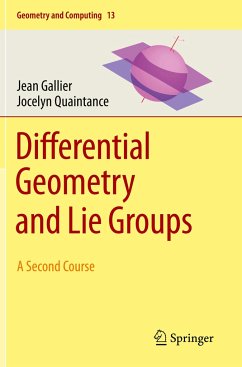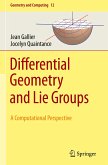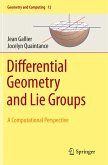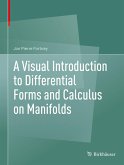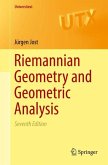This textbook explores advanced topics in differential geometry, chosen for their particular relevance to modern geometry processing. Analytic and algebraic perspectives augment core topics, with the authors taking care to motivate each new concept. Whether working toward theoretical or applied questions, readers will appreciate this accessible exploration of the mathematical concepts behind many modern applications.
Beginning with an in-depth study of tensors and differential forms, the authors go on to explore a selection of topics that showcase these tools. An analytic theme unites the early chapters, which cover distributions, integration on manifolds and Lie groups, spherical harmonics, and operators on Riemannian manifolds. An exploration of bundles follows, from definitions to connections and curvature in vector bundles, culminating in a glimpse of Pontrjagin and Chern classes. The final chapter on Clifford algebras and Clifford groups draws the book to an algebraic conclusion, which can be seen as a generalized viewpoint of the quaternions.
Differential Geometry and Lie Groups: A Second Course captures the mathematical theory needed for advanced study in differential geometry with a view to furthering geometry processing capabilities. Suited to classroom use or independent study, the text will appeal to students and professionals alike. A first course in differential geometry is assumed; the authors' companion volume Differential Geometry and Lie Groups: A Computational Perspective provides the ideal preparation.
Beginning with an in-depth study of tensors and differential forms, the authors go on to explore a selection of topics that showcase these tools. An analytic theme unites the early chapters, which cover distributions, integration on manifolds and Lie groups, spherical harmonics, and operators on Riemannian manifolds. An exploration of bundles follows, from definitions to connections and curvature in vector bundles, culminating in a glimpse of Pontrjagin and Chern classes. The final chapter on Clifford algebras and Clifford groups draws the book to an algebraic conclusion, which can be seen as a generalized viewpoint of the quaternions.
Differential Geometry and Lie Groups: A Second Course captures the mathematical theory needed for advanced study in differential geometry with a view to furthering geometry processing capabilities. Suited to classroom use or independent study, the text will appeal to students and professionals alike. A first course in differential geometry is assumed; the authors' companion volume Differential Geometry and Lie Groups: A Computational Perspective provides the ideal preparation.
"The book ... is intended 'for a wide audience ranging from upper undergraduate to advanced graduate students in mathematics, physics, and more broadly engineering students, especially in computer science.' ... The text's coverage is extensive, its exposition clear throughout, and the color illustrations helpful. The authors are also familiar with many texts at a comparable level and have drawn on them in several places to include some of the most insightful proofs already in the literature." (Jer-Chin Chuang, MAA Reviews, October 4, 2021)
"The book is intended for incremental study and covers both basic concepts and more advanced ones. The former are thoroughly supported with theory and examples, and the latter are backed up with extensive reading lists and references. ... Thanks to its design and approach style this is a timely and much needed addition that enables interdisciplinary bridges and the discovery of new applications for differential geometry." (Corina Mohorian, zbMATH 1453.53001, 2021)
"The book is intended for incremental study and covers both basic concepts and more advanced ones. The former are thoroughly supported with theory and examples, and the latter are backed up with extensive reading lists and references. ... Thanks to its design and approach style this is a timely and much needed addition that enables interdisciplinary bridges and the discovery of new applications for differential geometry." (Corina Mohorian, zbMATH 1453.53001, 2021)

